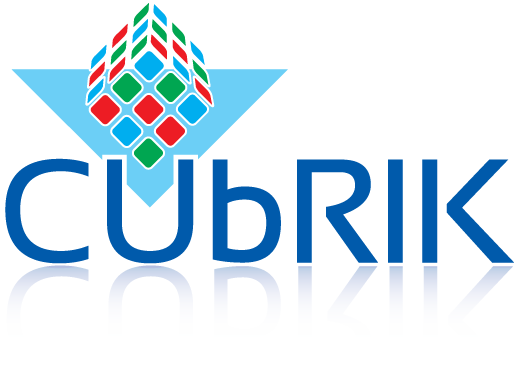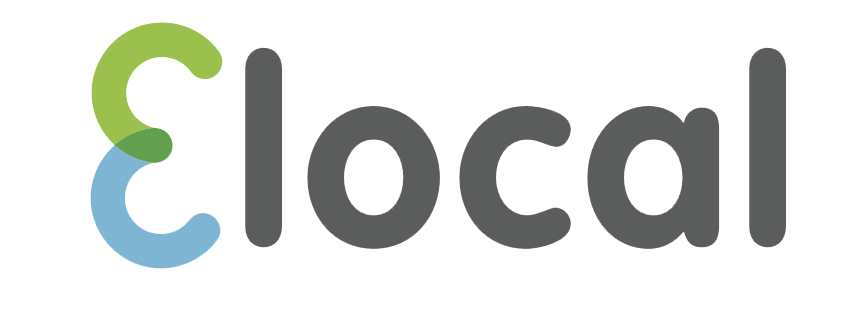Current projects
 The research project CHEST – Collective enHanced Environment for Social Tasks will be integrating social media, crowdsourcing and collective intelligence techniques to support social innovation. Starting in February 2014, the CHEST Challenge will promote the generation of breakthrough ideas which promise substantial societal benefits by using modern Information Technology, carrying out two rounds of open calls for ideas which try to meet the most urgent challenges European societies face by using modern IT components. Third Sector Innovators and Social Entrepreneurs of all sizes are invited to apply for a share of our 2.5 Million € funding budget. The project will be carried out in cooperation with Engineering Ingegneria Informatica S.p.A., Rom, PNO Consulting as well as 18 associated partners.
The research project CHEST – Collective enHanced Environment for Social Tasks will be integrating social media, crowdsourcing and collective intelligence techniques to support social innovation. Starting in February 2014, the CHEST Challenge will promote the generation of breakthrough ideas which promise substantial societal benefits by using modern Information Technology, carrying out two rounds of open calls for ideas which try to meet the most urgent challenges European societies face by using modern IT components. Third Sector Innovators and Social Entrepreneurs of all sizes are invited to apply for a share of our 2.5 Million € funding budget. The project will be carried out in cooperation with Engineering Ingegneria Informatica S.p.A., Rom, PNO Consulting as well as 18 associated partners.
 The SmartH2O project aims at providing water utilities, municipalities and citizens with an ICT enabled platform to design, develop and implement better water demand management policies, which are based on a shared understanding and motivation by the water users, thus leading to a reduction in water consumption, while not compromising the quality of life. SmartH2O builds a bi-directional stream between citizens and the water utility: in one direction, user behavioural data is collected through smart meters and an online social participation application (social game); in the other, awareness campaigns are delivered through the same application to stimulate socially-aware changes in user behaviour. This involves building user behavior models and introducing an agent-based simulation models allowing better planing of water management for water utilities and policy-making for the municipalities. Social computing techniques, visualization and a human-centered methodology provide important techniques for solving complex tasks in the data collection, analysis, modelling and facilitation of social awareness.
The SmartH2O project aims at providing water utilities, municipalities and citizens with an ICT enabled platform to design, develop and implement better water demand management policies, which are based on a shared understanding and motivation by the water users, thus leading to a reduction in water consumption, while not compromising the quality of life. SmartH2O builds a bi-directional stream between citizens and the water utility: in one direction, user behavioural data is collected through smart meters and an online social participation application (social game); in the other, awareness campaigns are delivered through the same application to stimulate socially-aware changes in user behaviour. This involves building user behavior models and introducing an agent-based simulation models allowing better planing of water management for water utilities and policy-making for the municipalities. Social computing techniques, visualization and a human-centered methodology provide important techniques for solving complex tasks in the data collection, analysis, modelling and facilitation of social awareness.
 CUbRIK is a 36 month Collaborative Project, partially funded by the European Commission’s 7th Framework ICT Programme for Research and Technological Development, Grant agreement no: 287704. CUbRIK will provide programmable pipelines implementing workflow for search-based processes coordinated across machine, human and crowd-sourced tasks for the three typical processes of multimedia search: content, query and relevance feedback processing.
CUbRIK is a 36 month Collaborative Project, partially funded by the European Commission’s 7th Framework ICT Programme for Research and Technological Development, Grant agreement no: 287704. CUbRIK will provide programmable pipelines implementing workflow for search-based processes coordinated across machine, human and crowd-sourced tasks for the three typical processes of multimedia search: content, query and relevance feedback processing.
 The ELOCAL project develops a Web2.0 platform for participatory city management. Its objective is to stimulate active citizen participation in local government through collaborative elicitation of citizen needs, their interactive visualization and online dialogue between the citizens and the local administration. A central element of its design is the data-centric interaction around a shared visualization facilitating online discussion.
The ELOCAL project develops a Web2.0 platform for participatory city management. Its objective is to stimulate active citizen participation in local government through collaborative elicitation of citizen needs, their interactive visualization and online dialogue between the citizens and the local administration. A central element of its design is the data-centric interaction around a shared visualization facilitating online discussion.

 Energy Turn Trialogues at Humboldt-Viadrina School of Governance: The political decision of the German government to phase out of the use of nuclear energy within the upcoming decade has confronted economy, society and politics with great challenges. In order to implement this energy turn as a “jointly achieved feat for the future” (and thereby in accordance with the position taken by the German Ethics Commission for Safe Energy Supply), all involved parties need to cooperate closely. In an on-going series of Trialogues (Three-Actor-Dialogues), the pertaining problems, interests, conflicts of objectives and possible courses of action connected to the energy turn are discussed across all involved sectors.
Energy Turn Trialogues at Humboldt-Viadrina School of Governance: The political decision of the German government to phase out of the use of nuclear energy within the upcoming decade has confronted economy, society and politics with great challenges. In order to implement this energy turn as a “jointly achieved feat for the future” (and thereby in accordance with the position taken by the German Ethics Commission for Safe Energy Supply), all involved parties need to cooperate closely. In an on-going series of Trialogues (Three-Actor-Dialogues), the pertaining problems, interests, conflicts of objectives and possible courses of action connected to the energy turn are discussed across all involved sectors.
Member of the research advisory board, in particular regarding the design of participatory processes and the uses of knowledge visualization and social media for cooperation in multi-stakeholder settings.